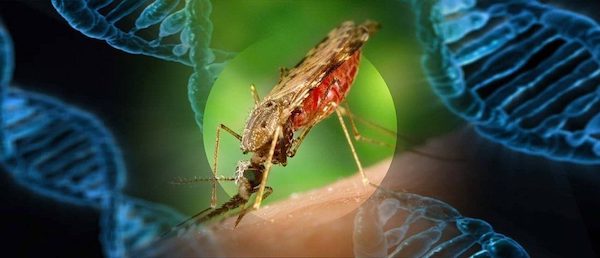
Why Hundreds of Millions of Genetically Engineered Mosquitoes Will Soon Be Released in Florida
Hundreds of millions of genetically engineered mosquitoes will soon be released in Florida, in a first for the U.S.
On Tuesday, the Florida Keys Mosquito Control District (FKMCD) approved plans to release the insects, who do not bite, as part of a pilot project launching next year.
Precisely when and where the trial will happen in Monroe County is yet to be determined, the FKMCD said, but an experimental use permit expires in 2022.
According to the non-profit Center for Food Safety public interest and environmental advocacy organization, which opposes the move, 750 million genetically modified mosquitoes will be set free.
Oxitec, a biotechnology company whose trademarked "Friendly" mosquitoes are at the center of the project, had previously been given regulatory approval by the U.S. Environmental Protection Agency (EPA), the U.S. Centers for Disease Control and Prevention (CDC), and the Florida Department of Health, among other state agencies.
Nathan Rose, Oxitec's head of regulatory affairs, told Newsweek that 750 million is the maximum number the EPA said it can use, and predicted the figure will be "far lower" and based on the number of wild mosquitoes in the area.
Why are the mosquitoes being released?
An invasive species, the Aedes aegypti mosquito can spread diseases including dengue, yellow fever, chikungunya and Zika. It "breeds and thrives" in densely populated urban areas where containers of standing water are common, FKMCD said.
The plans were passed amid an outbreak of dengue in the Upper Keys area. As of August 17, 47 people had been infected this year in Monroe County, according to the Florida Department of Health.
The insects have become resistant to pesticides used to control them in areas such as the Florida Keys. It is hoped the Friendly Aedes aegypti mosquitoes will control wild populations of the regular Aedes aegypti.
The modified mosquitoes are male and have been tweaked to produce male offspring when they mate with a female in the wild, with the female offspring dying in the larval stage.
Female mosquitoes bite for blood to mature their eggs, while males consume nectar and therefore don't spread disease.
According to FKMCD, their trait of not producing viable females is passed on to a limited number of generations in order to drive down populations.
According to Oxitec, the U.S. CDC, the University of Florida and the Monroe County Department of Health, as well as local leaders, will independently review the project.
CNN reported it has taken over a decade for the plans to be given the green light. The mosquitoes have already been tested in the Cayman Islands, Panama and Brazil, with Oxitec reporting successes in each case.
Commissioner Jill Cranny-Gage said, according to the Miami Herald:
"The science is there. This is something Monroe County needs."
She said: "We're trying everything in our power [to control the mosquitoes], and we're running out of options."
Pointing to the dengue outbreak, commissioner Phil Goodman told the Miami Herald:
"South Florida is the undisputed hot spot for mosquito-borne illnesses in the United States. The CDC is telling us that this threat is going to increase."
Some are fearful of the experiment, including more than 230,000 people who have signed a Change.org petition against it.
Jaydee Hanson, policy director for the International Center for Technology Assessment and Center for Food Safety, said in a statement:
"With all the urgent crises facing our nation and the State of Florida—the COVID-19 pandemic, racial injustice, climate change —the administration has used tax dollars and government resources for a Jurassic Park experiment."
Barry Wray, executive director of the Florida Keys Environmental Coalition, said in a statement: "FKMCD wants to proceed with an experiment that may be damaging to public and environmental health and our local economy."
Responding to their concerns, Grey Frandsen, CEO of Oxitec, told Newsweek:
"These tactics are the same used by the anti-vaccine community, and are typical of the unscientific, misleading information spread by anti-GM [genetic modification] activists who oppose this project and seek to use fear to achieve their political and fundraising aims.
"In scientific reality, this project has no risks for human health or the environment, which has been confirmed by federal and state regulatory agencies after exhaustive scientific review of the project, including 25 commissioned scientific studies comprising 4,500 pages of documentation."
